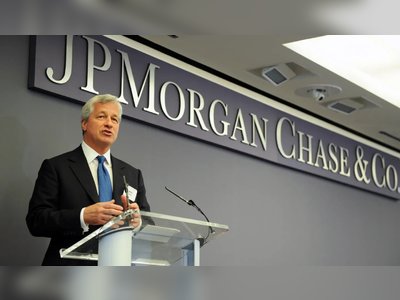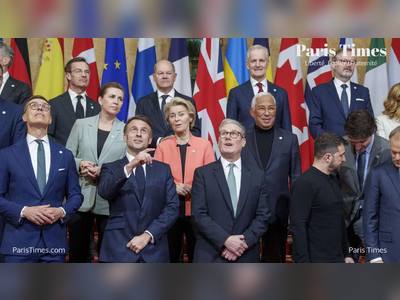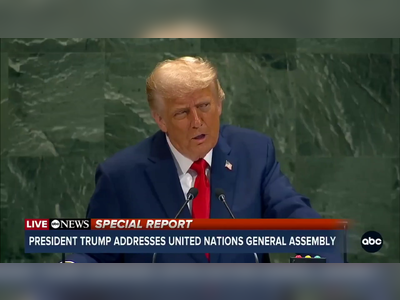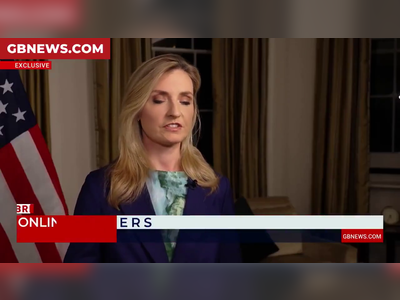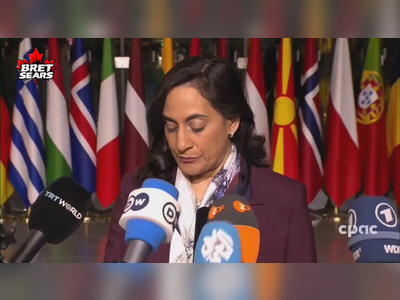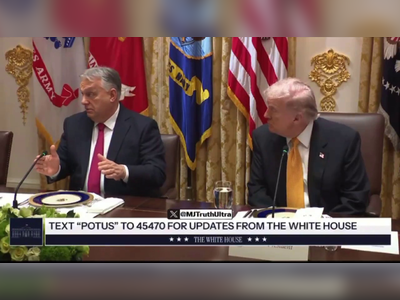Global Inflation Rates Show Signs of Easing Amidst Economic Uncertainty
Many countries report a decline in inflation rates as central banks reassess their monetary policies.
Inflation rates around the world have shown indications of decline, according to recent data released by various national statistical agencies.
In the United States, the Consumer Price Index (CPI) rose by 3.7% in September 2023 compared to the previous year, a decrease from 4.0% in August, marking the lowest annual increase since early 2021. This trend has prompted discussions regarding the Federal Reserve's future monetary policy actions, with some analysts suggesting a potential pause in interest rate hikes.
In the Eurozone, inflation fell to 4.3% in September, down from 4.5% in August, signaling a gradual stabilization in prices following a period of record highs.
The European Central Bank (ECB) maintains its cautious stance as it navigates the delicate balance of fostering economic growth while controlling inflation.
The ECB's recent decisions reflect concern over the persistently high cost of living across member states.
Emerging markets have similarly reported easing inflation rates.
In Brazil, inflation slowed to 5.2% in September from 5.6% in August, a reduction attributed to falling food prices and favorable currency conditions.
The Brazilian central bank is closely monitoring these developments as it contemplates its next steps in monetary policy.
Meanwhile, in the United Kingdom, annual inflation dropped to 6.7% in September, down from 6.8% in August.
The Bank of England has indicated that it may reach its inflation target of 2.0% sooner than previously anticipated, but continues to face challenges related to wage growth and energy prices.
Several factors contribute to the easing of inflation, including stabilizing supply chains, declining energy prices, and the impact of previous interest rate hikes implemented by central banks worldwide.
Supply chain disruptions that characterized the COVID-19 pandemic have gradually abated, leading to improved availability of goods and a reduction in prices.
Despite these positive trends, economic forecasts remain cautious in light of potential geopolitical tensions, ongoing conflicts, and the lingering effects of the pandemic on global economic activity.
Analysts urge policymakers to remain vigilant and adaptable to rapidly changing economic conditions as they navigate the landscape of inflation, supply, and sustainability.
Countries across Asia are also reporting declining inflation rates.
In Japan, inflation has stabilized at 3.2% as of September, prompting discussions around the effectiveness of the Bank of Japan's monetary easing measures.
Additionally, China's government reported an inflation rate of 0.2% for September, indicating extremely low price growth, which has raised concerns over deflationary pressures in the world's second-largest economy.
Ongoing discussions among international economic organizations highlight the importance of coordinated policy responses to inflationary trends, reflecting a shared understanding of the interconnectedness of global economies.
As nations adjust their fiscal and monetary policies, international trade dynamics and currency fluctuations are likely to be influenced by these developments.
In the United States, the Consumer Price Index (CPI) rose by 3.7% in September 2023 compared to the previous year, a decrease from 4.0% in August, marking the lowest annual increase since early 2021. This trend has prompted discussions regarding the Federal Reserve's future monetary policy actions, with some analysts suggesting a potential pause in interest rate hikes.
In the Eurozone, inflation fell to 4.3% in September, down from 4.5% in August, signaling a gradual stabilization in prices following a period of record highs.
The European Central Bank (ECB) maintains its cautious stance as it navigates the delicate balance of fostering economic growth while controlling inflation.
The ECB's recent decisions reflect concern over the persistently high cost of living across member states.
Emerging markets have similarly reported easing inflation rates.
In Brazil, inflation slowed to 5.2% in September from 5.6% in August, a reduction attributed to falling food prices and favorable currency conditions.
The Brazilian central bank is closely monitoring these developments as it contemplates its next steps in monetary policy.
Meanwhile, in the United Kingdom, annual inflation dropped to 6.7% in September, down from 6.8% in August.
The Bank of England has indicated that it may reach its inflation target of 2.0% sooner than previously anticipated, but continues to face challenges related to wage growth and energy prices.
Several factors contribute to the easing of inflation, including stabilizing supply chains, declining energy prices, and the impact of previous interest rate hikes implemented by central banks worldwide.
Supply chain disruptions that characterized the COVID-19 pandemic have gradually abated, leading to improved availability of goods and a reduction in prices.
Despite these positive trends, economic forecasts remain cautious in light of potential geopolitical tensions, ongoing conflicts, and the lingering effects of the pandemic on global economic activity.
Analysts urge policymakers to remain vigilant and adaptable to rapidly changing economic conditions as they navigate the landscape of inflation, supply, and sustainability.
Countries across Asia are also reporting declining inflation rates.
In Japan, inflation has stabilized at 3.2% as of September, prompting discussions around the effectiveness of the Bank of Japan's monetary easing measures.
Additionally, China's government reported an inflation rate of 0.2% for September, indicating extremely low price growth, which has raised concerns over deflationary pressures in the world's second-largest economy.
Ongoing discussions among international economic organizations highlight the importance of coordinated policy responses to inflationary trends, reflecting a shared understanding of the interconnectedness of global economies.
As nations adjust their fiscal and monetary policies, international trade dynamics and currency fluctuations are likely to be influenced by these developments.
